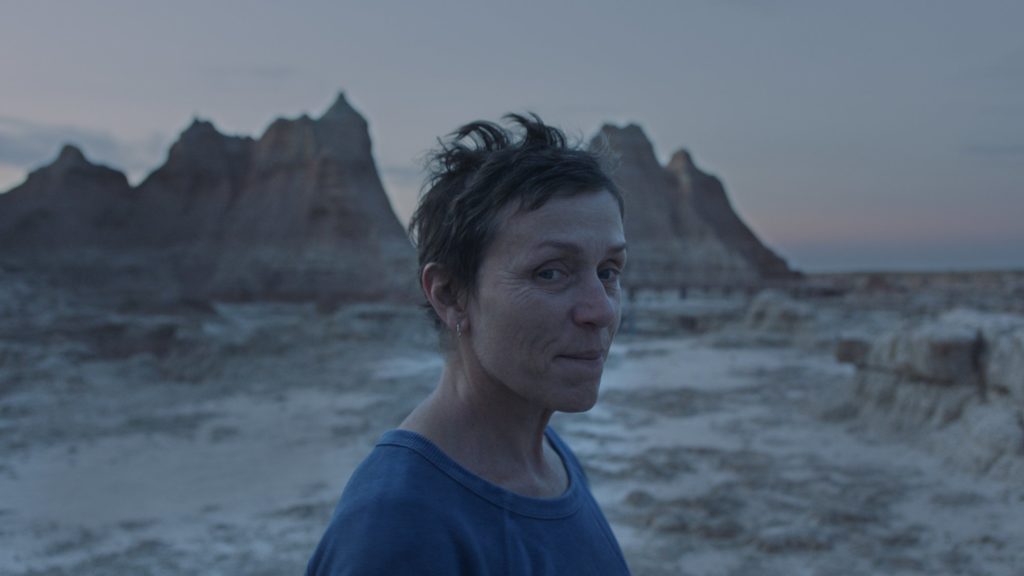By Connor Mirabella || Staff Writer

As many more Americans are just now taking note of domestic anti-Asian racism, it should not come as a surprise that an Asian woman has never won the award for “Best Director” at the Golden Globes. Well, not until Sunday, February 28th, when Chloé Zhao became the first Asian woman (and the second woman, ever) to win this prestigious award.
Zhao’s film, Nomadland, starring Frances McDormand, which was not exactly a box office success, has recently gained recognition and racked up an impressive list of awards. At the Venice film festival, Nomadland won the highly sought-after Golden Lion award, and at the Toronto Film festival, it won the People’s Choice award, making it the first film ever to win top prizes at both festivals.
Based on Jessica Bruder’s non-fiction book, Nomadland: Surviving America in the Twenty-First Century, the film follows a woman from Empire, Nevada. Empire started as, and has always remained, a company town. The US Gypsum plant there shut down in January of 2011 due to a decrease in demand for sheetrock. By July of that same year, its zip code had been discontinued. Fern, the main character, has lived in Empire most of her adult life. Following her husband’s death and the shutdown of the plant, Fern sells her possessions and begins living in a van. With her ties proverbially cut, she travels about in search of seasonal work and overnight parking spots. Her nomadic lifestyle offers her little company except by way of other nomads, who, for the most part, are played by real active American nomads.
Nomadland feels, at times, like the ultimate American film. This is a piece about the forgotten center of our country, a story of the recent past that we so often overlook. The vast, empty, yet beautiful landscapes reflect the collapse of isolated midwestern communities in a country that is losing manufacturing jobs and trending towards urbanization. Fern represents a community of people who have rejected the “white picket fence” lifestyle in favor of one dictated by freedom, independence, and self-sufficiency. The time in the film spent exploring America’s wide open plains, deserts, and empty mountain towns can both compel a viewer to go on a road trip and serve as a harsh reminder of the challenges that such a lifestyle includes. The pacing is slow and, at times, uneventful, thereby mirroring life on the road in open country. Zhao’s choice of relatively spare dialogue, accompanied by McDormand’s sometimes isolating yet emotionally-charged performance, transforms this film from a narrative into a nuanced epic.
The powerful depiction of rural emptiness and the emotional bottlenecking, which McDormand displays so well, is enhanced by Zhao’s eye for a uniquely American sense of emptiness and freedom: the desired absence of any and all oppressive forces. This theme serves as an important reminder of the demographic composition of this film’s creators. The director is a woman, the star is a woman, and they adapted the film from a book written by a woman. There is a wildly insufficient representation of female leads and directors in American cinema (and in film in general). Not necessarily attempting to fill that void, this cinematic work of art reminds us of how many gems await cinephiles everywhere as more voices begin to be heard in the arts.
Nomadland is a raw and unforgiving interpretation of the brutal reality of middle America’s gloomy future. The past decade has hit our nation in a way that is tangible, yet distant. Nomads are the new pioneers, braving the uncertainty that modernity has convinced mainstream America to avoid. This film, which is available on Hulu, is emblematic and heartfelt: a worthwhile watch and a worthwhile experience.
Senior Connor Mirabella is a Staff Writer. His email is jmirabel@fandm.edu.